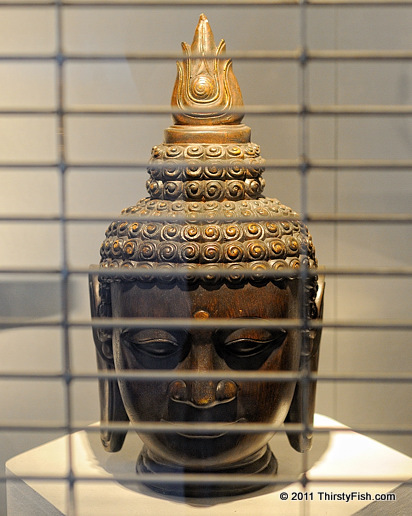Buddha Behind Bars / Feng Shui

This statue of Buddha was spotted in the store window of Daffy's - a regional discount clothes and home goods department store. 25 Centuries after his lifetime, Buddha has become a "window dressing" in a discount store?!
"Window Dressing" has become a figure of speech to mean: things or acts that make an inflated positive impression of something in a dishonest or deceptive way. It is often used in the context of financial entities (e.g. mutual funds, banks, corporations) selectively presenting their more successful investments. Cherry Picking; suppressing evidence or presenting incomplete evidence, is a fallacy as old as mankind. Incidentally, Buddha taught that the way leading to the end of suffering is through The Noble Eightfold Path, the first layer of which is "viewing reality as it is, not just as it appears to be" (samma ditthi/right understanding).
In the recent years, it has become trendy to own and decorate with Buddha Statues thanks to the marketeers of the New Age Movement and gurus of Eastern aesthetic principles such as Feng Shui. Unfortunately, Feng Shui itself has become a window dressing. According to skeptic Robert T. Carroll:
- "... feng shui has become an aspect of interior decorating in the Western world and alleged masters of feng shui now hire themselves out for hefty sums to tell people such as Donald Trump which way his doors and other things should hang. Feng shui has also become another New Age "energy" scam with arrays of metaphysical products ... offered for sale to help you improve your health, maximize your potential, and guarantee fulfillment of some fortune cookie philosophy". *


